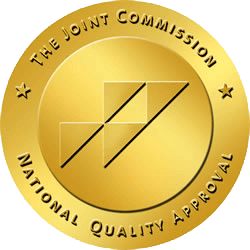How many times have you heard that drugs ruin lives? By this point, probably too many to count. We hear it on television, at school, from parents, the internet, and sometimes we even see it unfold before our very eyes. Despite this, for centuries mankind has constructed a malfunctioning, mental stance from which we process such ideas. Instead of learning from others, we tend to think it won’t happen to us. Often, this leads us to tell ourselves, “Sure, it could be dangerous, but it feels so good.” Unfortunately, this stance leads to the very same situations that we thought we could avoid. No matter what drug you favor, every drug affects the brain in negative ways, no matter how much you deny it.
Normal Brain Function
To begin explaining how drugs alter brain function, you should know that general mental processes are chemical in nature, and the proper functioning of such directs more than our intelligence and emotions. Your brain does more than store information for next week’s English exam. If it weren’t for your brain, you couldn’t see, taste, chew, walk, run, or feel the need to protect yourself. It is what provides stimulation for all that is essential to survival, including heart rate, body temperature, and even the rate in which you breathe. The brain does all of this through the efficient release of chemicals, which direct systems, organs, and tissues to react and transmit a response. Because of this, uninhibited brain function is essential to life.
How Drugs Change Brain Processes
Just minutes after ingestion, injection, or inhalation of a drug, the brains’ chemical functions begin to change. Most noticeably, bringing immediate alterations in heart beat and perception of pleasure. This is because drugs act as chemical neurotransmitters. Therefore, they create an overabundance of neural responses that result in a massive release of the feel-good chemical dopamine. Providing you a rewarding sensation, you think that taking the drug was a self-fulfilling idea; when in fact, it was exactly the opposite. You not only experience slowed reactions and inhibited decision making, along with the lightheaded, pleasurable buzz, but also serious consequences that over time lead to even more problems.
Ongoing Effects
Surges of satisfaction may be enjoyable but excess dopamine causes adverse reactions. First, the surge becomes overwhelming for the brain, causing synapses to become resistant to the chemical in effort to restore normalcy. Now, instead of getting the same euphoric effect from, let’s say, smoking one joint, it takes much more of the drug to produce the same rewarding sensation. Second, such resistance also affects natural responses. No longer able to make full use of dopamine, rewards like educational success, achieving a goal, or receiving a complement become less fulfilling. Therefore, happiness and contentment requires an excessive amount of dopamine, an effect only achieved through drug use. Although this begins gradually, over time dopamine resistance becomes more permanent and you become more addicted. Of course, changes like these also have other effects. Remember that every reaction has an equal and opposite reaction. By altering neurotransmitter circuits, excessive amounts of dopamine cause desensitization to natural thinking processes associated with reward. When natural rewards no longer stimulate, the brain extends less effort toward mental processes that bring such rewards, causing a suppressed need for learning and accomplishment.
The Dark Side of Drugs on the Brain
Individuals then begin to feel complacent, hopeless, and depressed. Again, resulting in yet another reaction. No longer feeling reward through learning, your brain becomes less concerned with remembering. An effect created through repetitiveness, the cognitive system essentially stops feeling good about what should bring natural exhilaration and begins to focus on the only thing that can — the drug. This point is where one loses the ability to easily fight off the craving to get high. Because of this, the “it won’t happen to me mentality” is nothing but a falsely-constructed wish. If you’re human and seeking pleasure through drug use, this may very well be happening to you.
There’s Still Hope
By now, you may be trying to fight the idea that you relate to this information, but you should also know that acknowledging denial is considered the first step in recovery. Drugs are life-altering, whether you get in trouble or not. The more you read, the more you’ll begin to see just how they are affecting you. Don’t lose hope, soon you’ll be ready to seek help with making changes in favor of a brighter future. To learn more about the effects of drug on the brain and how we can help with addiction, give us a call at 877-466-0620.


